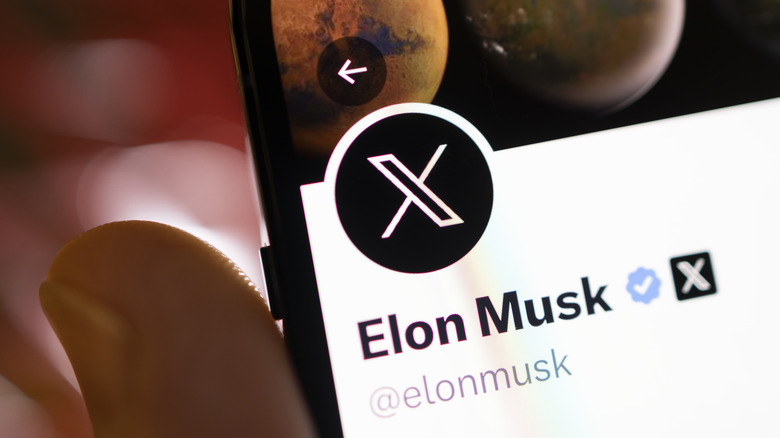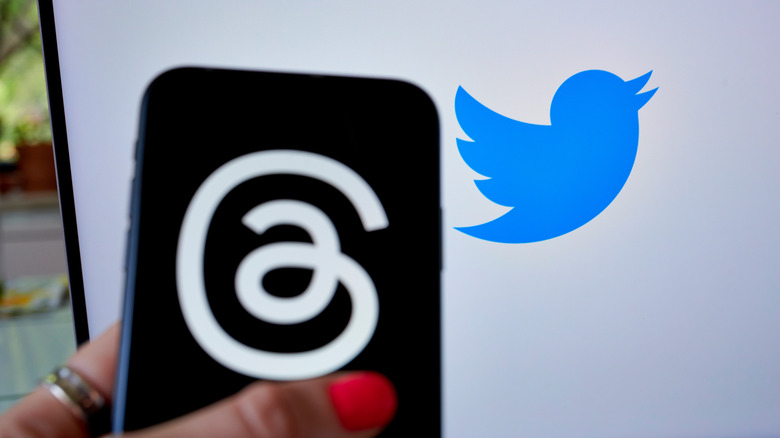Elon Musk's X Accused Of Throttling Links To Twitter Competitors
X, the company formerly known as Twitter, is accused of deliberately prolonging the time it takes for links to redirect to rival platforms and some news outlets that Elon Musk is not a fan of. First reported on YCombinator and later allegedly verified by The Washington Post, all links that lead from X to major competitors now routinely take around five seconds. Threads, the Twitter copycat by Meta that was released this summer and quickly amassed millions of followers, is an obvious target of X's throttling.
But it appears that Musk has issues with other Meta platforms, too, as link redirects using the "t.co" format take roughly five seconds if the destination is Facebook or Instagram, as well. That may be due in part to Musk's over-the-top reaction to Zuckerberg moving on from the proposed cage fight between the two. Meta isn't the only subject of Musk's latest move, though, as X is also seemingly throttling BlueSky, a rival platform backed by Twitter co-founder Jack Dorsey, who once considered Musk the "singular solution" to Twitter's problems.
According to the new report, X is also throttling the link pipelines leading to Substack. The latter is not a direct social media rival to X, but it runs a fairly successful newsletter platform — and, at one point, it had apparently upset Musk due to suggestions that it would release its own Twitter rival. As well, X is actively trying to become a publishing platform of its own, opening the doors for long-form posts, in-line multimedia embeds, and high-resolution video uploads of up to two hours runtime.
Twitter's link throttling is impacting some news websites, too
This isn't the first time Musk's social media company has taken aim at competing platforms. In December 2022, Twitter started banning links promoting other social media sites like Instagram, Facebook, and Mastodon, among others. Dorsey had noted at the time that the move didn't "make sense," and the company soon reversed that policy after backlash. Musk also wrote something akin to a statement about the matter, saying in a tweet, "Casually sharing occasional links is fine, but no more relentless advertising of competitors for free."
As far as the throttling goes, it is implemented via the in-house link shortening service that relies on the "t.co" URL format. It was used as an identifier to let sites know that the traffic was coming from Twitter, now called X. But it appears that in addition to rival social media platforms, Twitter/X is also slowing down the redirects to news publishers that Musk dislikes. Reuters and The New York Times are among the alleged targeted outlets. What did they do to earn Musk's attention?
In 2021, the NYT published a report citing former employees who claimed Tesla sidelined safety in its relentless approach toward self-driving tech innovation. This was followed by another exhaustive feature titled "Elon Musk's Appetite for Destruction." Reuters, on the other hand, published a bombshell special report detailing how Tesla allegedly created a special team tasked with burying complaints regarding range issues. As expected, Musk has called out both these platforms, accusing them of targeting him and his businesses.

